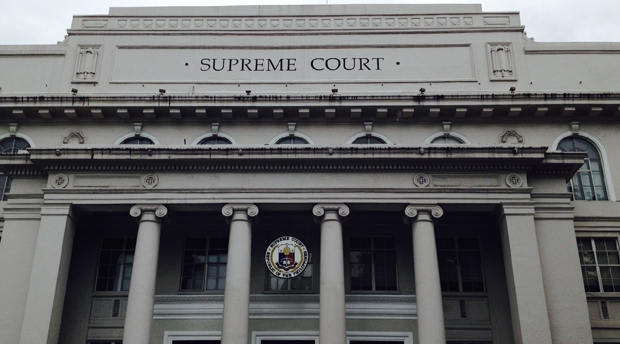
In an en banc Sept. 15 resolution released on Thursday, the high court instead ordered the Comelec and its partner private firm to comment on the petition “within a nonextendable period of 15 days from notice.”
Last Monday, petitioners Francisco Aguilar Jr. and Guillermo Santos asked the high court to invalidate the Comelec-Smartmatic deal for the lease of 70,977 optical mark readers (OMRs) to be used for the May 2016 elections.
‘Spending splurge’
The petitioners said the Comelec had acted with grave abuse of discretion in awarding the contract to Smartmatic, calling it “an act of spending splurge.”
The case is the latest in a growing list of suits questioning contracts between the Comelec and Smartmatic for the automation of next year’s elections. Smartmatic was the Comelec’s contractor in the 2010 and 2013 polls.
In a ruling earlier this year, the high court nullified the P268.8-million contract between Comelec and Smartmatic for the diagnostics, maintenance and repair of the more than 80,000 precinct count optical scan machines used in the two earlier elections.
Source code review
Meanwhile, the Comelec has announced that interested parties or groups intending to participate in the local source code review have until Sept. 22 to submit their written request to the Comelec.
The Comelec en banc has issued Resolution No. 9987 which provides the guidelines on the conduct of the local source code review for the automated election system to be used in the May 2016 polls.
Parties or groups interested in conducting a local source code review must belong to political parties or coalitions of parties duly registered and/or accredited by the commission; legitimate organizations or groups duly accredited by the commission, including duly accredited citizens’ arms; two information technology groups recommended by the Comelec Advisory Council; and the host educational institution.
The source code is the program instructions that will define how the automated election system (AES) will operate.
The source code review will involve the analysis of the election management system, consolidation and canvassing system and the OMR machines.
The De La Salle University (DLSU) will host the local source code review, which will start on Oct. 1.
Comelec Chair Andres Bautista earlier said the whole process will last for seven months, starting with the base source code review that will start on Oct. 1. He said a customized source code review will be undertaken in February 2016.
The base source code is the one to be submitted by the service provider for the 2016 AES while the customized source code is the one that will include the inputs from the Comelec.
Parallel check
The source code review at the DLSU is being conducted parallel with a similar review by SysTest Labs Inc., the independent, third-party reviewer tapped by the Comelec.
Smartmatic-TIM said in a statement yesterday that it was moving production of the OMR machines to Taiwan from China on the request of the Comelec, though it would mean that it will be shouldering P400 million in additional costs.

